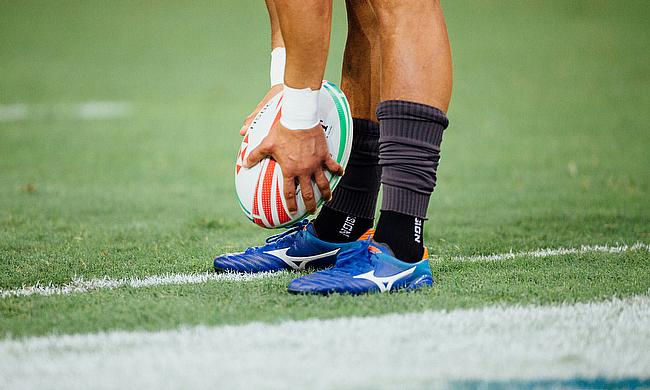How Student Rugby Players Can Stay Ahead of Assignments during Tournament Season
For student rugby players, the search for academic success amidst the stressful demands of competitive sports is a daunting balancing act.
The tournament season provides an additional layer of complexity, which typically involves extensive travel, grueling training regimens, obliterated daily routines, and extensive preparations for games. These are all factors that can collectively reduce available time to study, complete coursework, and address academic work. However, maintaining academic success is not only important for future career advancement but also an essential requirement for collegiate athletic eligibility in much of the US.
In this comprehensive guide, we explore valuable and realistic methods that student rugby players can use to effectively navigate their coursework during tournament season. Regardless of whether you're a student in search of ways to manage your time more efficiently, optimize travel downtime, or seek professional guidance on a big paper, these tips will help you navigate the semester stress-free.
1. Start with a Strategic Schedule
Effective time management begins with advance planning. As soon as the tournament schedule is released, it is necessary to synchronize it with your school calendar. This involves cross-checking match dates, travel times, and resting periods against assignment due dates, exam timelines, and group project deadlines.
Online tools like Google Calendar, Notion, Trello, or student planning programs like MyStudyLife can offer color-coded visual timetables that highlight busy periods. Having an idea of overlap and heavy weeks in advance enables you to create a proactive plan to minimize stress and stay on track. You may want to break down large assignments into manageable chunks and work them out in an extended timetable.
Also, don't underestimate the power of communication. Early conversations with professors, lecturers, and academic advisors can lead to productive concessions. More colleges are seeing the time constraints student-athletes face and may provide deadline leniency, alternate assignments, or recorded lectures to help ease the burden.
2. Rank Tasks by Impact
Not all assignments are created equal. Some will be worth only 5–10% of a final grade, but others—midterms, finals, or year-long dissertation work—are worth much larger percentages of your academic grade. Knowing the distinction can make you better aware of how to make the most of your limited time and mental energy.
Creating a task matrix, where tasks are ranked by their urgency and impact, may dispel the mystery of where to place your efforts. During especially tough weeks, it may be necessary to shift attention briefly to high-priority tasks. For student-athletes with full academic and athletic schedules, hiring help for crucial assignments can be a strategic move. Most student-athletes choose to use credible dissertation writing services when faced with time-sensitive, research-based projects. These services offer personalized assistance in structuring, formatting, and editing academic writing—without compromising on quality while neglecting athletic responsibilities.
3. Make Use of Down Time
Travel is a two-way street: it tends to disturb your routine but also leaves you with pockets of time that can be made the most of. During a bus trip to an away game, lingering around hotel lobbies, or relaxing after training, these pockets of time can be devoted to academic activities.
Prepare in advance by downloading important reads, offline presentation slides, or pre-recorded lectures onto your gadgets. Offline accessible versions like PDFs and eBooks are easy to learn on the go. Alternatively, listen to learning podcasts or audio-book formats of important texts during passive time, e.g., when stretching or driving.
Programs such as Notion, Evernote, and Google Keep allow you to jot down ideas or brainstorm essay topics in brief windows of time. By segmenting work—like outlining an essay, writing a paragraph, or studying flashcards—you can accomplish substantial amounts of work in only 10-15 minutes.
4. Work with Others and Share Feedback
In a high-stress climate, relying on a robust support network can be the difference between academic achievement and burnout. Academic collaboration, when conducted ethically and responsibly, is not only beneficial—it's necessary.
Forming or becoming a member of peer study groups has advantages of knowledge sharing and high motivation levels. The groups can meet remotely, especially when travel is inconvenient for meetings face-to-face. Sites like Zoom, Google Meet, and Microsoft Teams allow instantaneous sharing and working on assignments together.
Professors must be communicated with succinctly and consistently. When you anticipate that you will miss class or can't meet a deadline, it is advisable to notify your instructor ahead of time rather than looking back. Honest communication conveys responsibility and will help to get you more hospitable responses. Don't wait when you're in a bind—make your stand early.
5. Use University Resources
Most colleges have a range of academic support services specifically designed for student-athletes. These range from individual academic advisors to tutors aware of the athlete schedule, mandatory study halls, and academic workshops.
Utilize these resources as soon as possible at the beginning of the term. Joining a weekly tutoring session or committing time to a writing center can offer structure and feedback that might otherwise be difficult to find during the busiest tournament weeks.
Mental wellness resources are just as important. The pressures of elite-level rugby combined with coursework stress can contribute to burnout and anxiety. Sports psychologists or mental well-being programs are increasingly offered by many institutions as a means to support student-athletes in a more holistic manner. According to a 2021 NCAA report, more than 30% of student-athletes experienced considerable emotional distress in their competitive season, which highlights the importance of specific mental health support.
6. Establish Habits of Studying Regularly
Consistency beats intensity in the case of lasting academic momentum. Instead of depending on cramming all-nighters, try to include blocks of daily or near-daily studying into your schedule. The blocks don't need to be long—at least 30 to 45 minutes of concentrated effort can be productive if done regularly.
Use time-management strategies such as the Pomodoro Technique, where you learn in 25-minute increments with 5-minute pauses in between. It can enhance focus and decrease mental fatigue. As much as possible, schedule your study sessions when you are at your best—whenever that might be, whether morning or late evening.
Developing a focused study area, even when traveling, can also enhance concentration. Noise-cancelling headphones, blue-light glasses, and portable desk organizers can turn your workspace on the go more concentration-friendly.
7. Reflect, Evaluate, and Adjust
At the end of each cycle of tournaments or school year, review your strategies. What worked? What did not? Could more sophisticated planning have assisted? Did you utilize maximal amounts of available support mechanisms?
Keeping a journal or digital log of your weekly tasks, achievements, and setbacks can provide valuable insight over time. You’ll start to notice patterns—like when you’re most productive, which courses need more time, or when you’re likely to feel overwhelmed. Use these reflections to adjust your future approach.
It can also be helpful to seek input from your academic advisors, teammates, or even professors. Honest discussion of your performance can reveal blind spots and highlight areas for improvement.
Conclusion: Building a Balanced Student-Athlete Life
Balancing academics and athletics during rugby tournament season is definitely tough—but it's also an opportunity to build resiliency, discipline, and time-management skills that will serve you well long after university.
By planning ahead, capitalizing on downtime, needing help when needed, and availing oneself of resources, student rugby players can achieve academic excellence without sacrificing athletic ability. Remember: one isn't necessary at the other's expense.
Instead of seeing these roles as oppositional priorities, give them a go as complementary parts of your identity. Given the right attitude, support, and mindset, you can genuinely thrive—on the field and at school.


